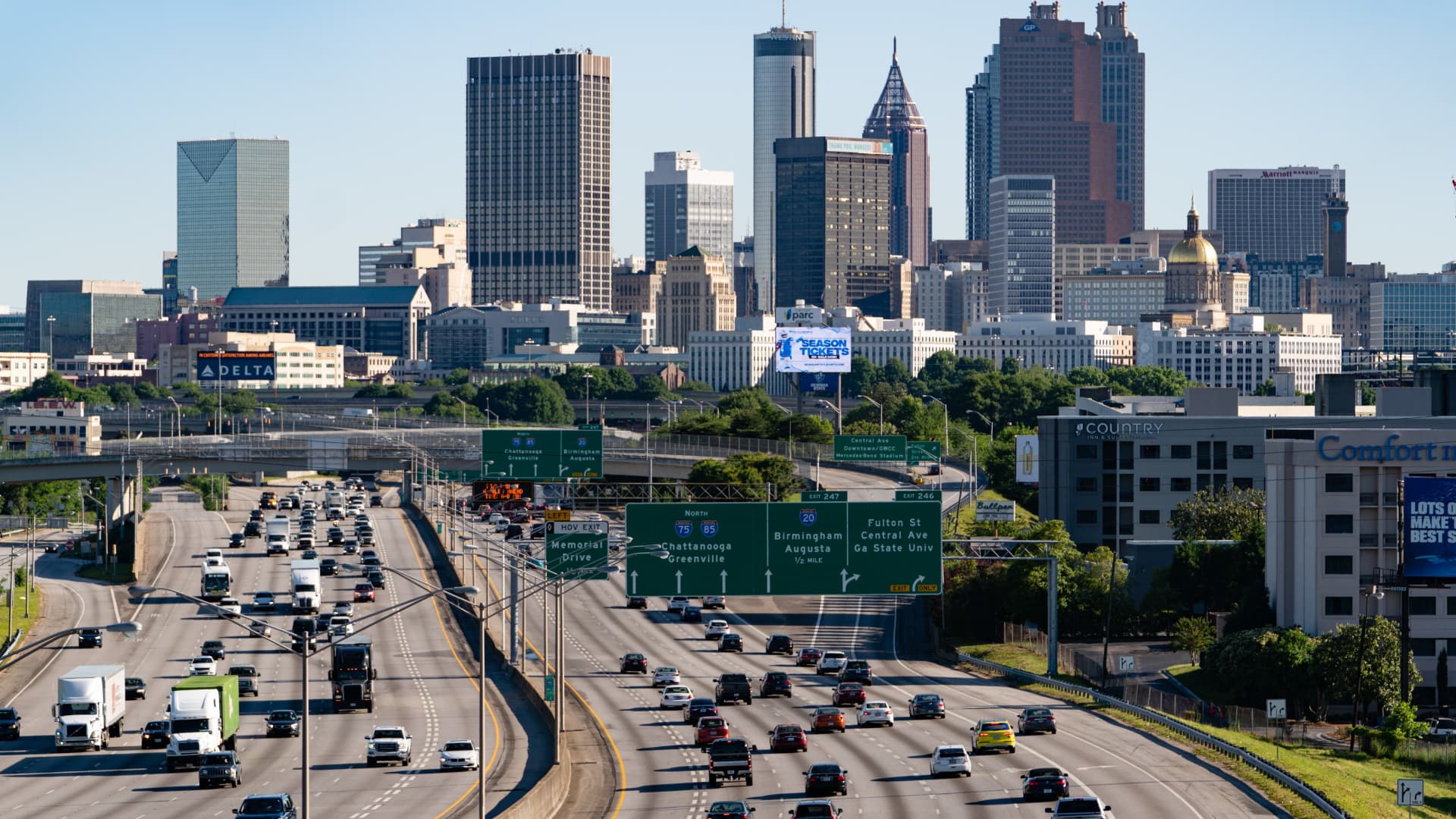How Atlanta’s growing economy burned low-income renters and homebuyers
Metro Atlanta is on a hot streak.
More than 6 million people now live in the region, according to recent Census Bureau estimates. Experts say that’s about a 50% increase from 20 years ago.
“It’s a huge increase in population,” said Dan Immergluck, a professor of urban studies at Georgia State University. “That has taxed the region environmentally.”
Financial and tech firms continue to flock toward metro Atlanta. This builds on the city’s strong logistics, entertainment and film, and health services industries.
Demand for quality housing in the region has become fierce, particularly in the city center.
“Atlanta is becoming a wider city,” said Nathaniel Smith, founder and chief equity officer at the Partnership for Southern Equity. “Now, whether we’ll be able to kind of balance that out and ensure that, you know, black folks don’t get pushed out … I’m not sure.”
In September 2022, the median home in the city of Atlanta was valued at about $400,000, according to Zillow’s Home Values Index. That price would be out of reach for the typical household in the city of Atlanta, which made about $64,179 annually in recent years. Rents also have ticked above the national median.
Some Atlanta locals believe ambitious urban redevelopment projects, such as the BeltLine, have contributed to fast-rising prices in the area.
The BeltLine is a 22-mile loop of walking and cycling trails built largely on abandoned rail lines and developed as a public-private partnership.
It was intended to connect different neighborhoods in the city with each other and to create, along the path, walkable communities where residents could access a variety of services without needing a car.
“We’ve put about $700 million into the BeltLine to date,” said Atlanta BeltLine Inc. CEO Clyde Higgs. “What we’ve seen is roughly an $8 billion private investment that has followed the BeltLine. That has caused a number of good things and also a number of pressures within the city of Atlanta.”
While the region evolves, a raft of community organizers are launching efforts to preserve housing affordability.
“It would have been great if we had an opportunity to secure more land earlier in the life of the BeltLine,” said Amanda Rhein, executive director of the Atlanta Land Trust, “because property values continue to increase in close proximity to the project.”
Watch the video to see how Atlanta plans to preserve housing affordability amid rapid growth.
For all the latest Technology News Click Here

